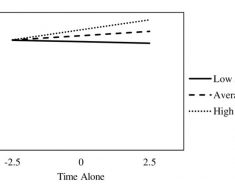India: Black fungus epidemic discussed by health experts
When you subscribe we will use the information you provide to send you these newsletters. Sometimes they’ll include recommendations for other related newsletters or services we offer. Our Privacy Notice explains more about how we use your data, and your rights. You can unsubscribe at any time.
Magnesium is one of the most common minerals on earth, and is present in a lot of our foods. It is essential for human health as every cell in your body needs magnesium to function.
Magnesium contributes to proper brain, heart, and muscle function, as Is essential for your overall health.
Taking magnesium supplements has been linked with having a number of benefits, including reducing inflammation, relieving constipation and lowering your blood pressure.
It has also been linked with helping those with sleep problems, as it helps your brain and body relax.
Magnesium aids the process of falling asleep by activating the parasympathetic nervous system, which is responsible for helping you feel calm and relaxed.

It regulates the hormone melatonin, which helps guide sleeping and waking cycles.
The magnesium binds to GABA receptors, which is responsible for calming down nerve activity.
By slowing these processes, magnesium can aid you in preparing for a good night’s sleep.
If you don’t have enough magnesium in your body, it can disrupt your sleep and stop you from falling asleep quickly.

Certain groups can also be at higher risk of magnesium deficiency:
• People with digestive diseases: Issues with your digestive tract can cause your body to not absorb vitamins and minerals properly, resulting in deficiencies.
• People with diabetes: Insulin resistance and diabetes are linked with excess magnesium loss.
• People with alcohol dependence: Deficiency in this mineral is common among those who drink heavily.
• Older adults: Many older adults have less magnesium in their diets than younger adults and may also be less efficient at absorbing it.
DON’T MISS
Type 2 diabetes: Eight bodily reactions if your blood sugar plummets [INSIGHT]
How to sleep: Wear socks to bed – Dr Mosley tip [INSIGHT]
Is apple cider vinegar good for your liver? [INSIGHT]
What sort of magnesium should I be taking to help my sleep?
The safe upper level for magnesium supplements is 350 mg per day.
Magnesium glycinate is the go-to for helping you sleep better.
It’s easily absorbed by the body and is considered to help you keep calm and relaxed, but research supporting its efficacy is still needed.

However, before rushing to the counter to get yourself some supplements, it’s best to consider making changes to your diet to see if that helps.
Fish, spinach and nuts all have high amounts of magnesium in them.
You should consult with your doctor before taking any supplements if you have a health condition or are taking any medication.
Source: Read Full Article





